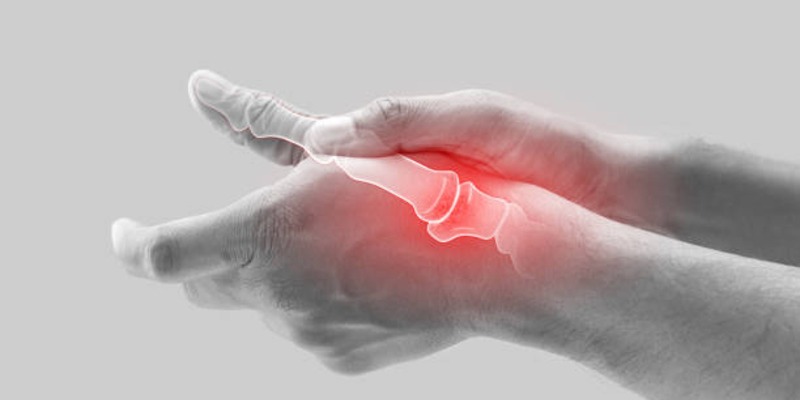Have you been experiencing sharp and intense pain that radiates throughout your body? Understandably, the soreness from a pinched nerve is uncomfortable and disruptive. In this comprehensive guide, we will look at understanding what causes a pinched nerve and simple tips for how you can manage them with lifestyle habits as well as home remedies that may help relieve discomfort temporarily until professional medical attention is available.
Symptoms of a Pinched Nerve:
A pinched nerve can be a real pain - literally! It can cause a range of symptoms, including tingling, numbness, and weakness in the affected area. These symptoms can be really frustrating, especially when they start to interfere with your daily life. But with a bit of knowledge and understanding, you can take steps to manage these symptoms and help your pinched nerve heal.
By paying attention to your body and seeking medical advice if necessary, you can get back to feeling yourself in no time. Understanding the symptoms of a pinched nerve is the first step on your road to recovery.
How to Diagnose a Pinched Nerve?
A pinched nerve can be a pesky and painful problem. Symptoms can range from numbness and tingling to sharp, shooting pain. The first step in treating a pinched nerve is to diagnose the problem. Typically, a physical exam and medical history will be taken by a physician to try and pinpoint the location of the pinched nerve. Additional tests, such as X-rays or MRI scans, may also be ordered to further investigate the issue. Treatment options vary depending on the severity of the pinched nerve, but can include physical therapy, medication, or even surgery in some cases. By accurately diagnosing a pinched nerve, individuals can start on the path to recovery and alleviate their discomfort.
Natural Remedies for Treating a Pinched Nerve:

Dealing with a pinched nerve can be a severely uncomfortable experience; however, natural remedies can be effective in relieving the pain. One of the best things you can do is to practice gentle stretching exercises. Stretching helps to release the pressure on the nerve, reducing pain and promoting healing.
Also, applying heat or cold to the affected area can offer some relief in pain and discomfort. Another great natural remedy for treating a pinched nerve is getting a therapeutic massage which can help relieve pressure on the nerve. Getting enough sleep can also be essential in the healing process.
Exercises to Help Relieve Pain and Discomfort from a Pinched Nerve:
A pinched nerve can cause a lot of discomfort and pain, but luckily, there are some exercises that can help relieve these symptoms. One effective exercise is the neck release, which involves tilting your head to the side and applying gentle pressure with your hand. Another exercise is the nerve glide, which involves slowly stretching your affected limb.
Gentle Stretching for Pain Relief:
Stretching can be an excellent way to alleviate pain and discomfort caused by a pinched nerve. It's important to be gentle and not overdo it as this may cause further damage. Some recommended stretches include the shoulder roll, where you gently roll your shoulders backward in a circular motion, and the hamstring stretch, where you extend one leg out while sitting on a chair and lean forward. These stretches can help release tension and pressure on the nerve, providing relief from pain.
Heat or Cold Therapy to Soothe Nerve Pain:
Applying heat or cold can be an effective way to manage the discomfort caused by a pinched nerve. Cold therapy helps reduce inflammation and swelling, while heat therapy helps increase blood flow to the affected area, promoting healing. You can use ice packs or heated pads, depending on what feels more comfortable for you. Make sure to follow medical recommendations and not apply extreme temperatures directly to the skin.
Therapeutic Massage to Alleviate Discomfort:
Many people find relief from pinched nerve pain through therapeutic massage. A skilled massage therapist can target the affected area and release tension, promoting healing and reducing discomfort. It's essential to communicate with your massage therapist about the location of your pinched nerve to ensure they can tailor their techniques to your needs.
Adequate Rest to Aid Healing:
Getting enough rest is crucial for healing and managing the pain and discomfort caused by a pinched nerve. When your body is at rest, it can focus on repairing itself, reducing inflammation, and promoting healing. It's essential to avoid strenuous activities that may aggravate the pinched nerve during this time.
Neck Release Exercise for Pinched Nerve:
To perform the neck release exercise, sit or stand in a comfortable position with your shoulders relaxed. Tilt your head to the side, bringing your ear towards your shoulder. Use your hand on the same side as the tilted head to gently apply pressure and hold for 30 seconds. Repeat on the other side. This exercise can help stretch and release tension in the neck, relieving pain and discomfort caused by a pinched nerve in that area.
Non-Surgical Treatment Options for Dealing with a Pinched Nerve:

Dealing with a pinched nerve can be a painful and debilitating experience. Fortunately, there are non-surgical treatment options available that aim to alleviate the symptoms of a pinched nerve. Physical therapy is often recommended as a first-line treatment as it can help to improve flexibility, strengthen muscles and increase range of motion.
Another option is chiropractic care, which involves the manipulation of the spine to relieve pressure on the affected nerve. Pain medication and anti-inflammatory drugs can be prescribed to manage discomfort. With the right treatment plan in place, it is possible to find relief from the discomfort caused by a pinched nerve without resorting to surgical interventions.
When to Seek Medical Attention for a Pinched Nerve?
A pinched nerve can be a very painful and uncomfortable experience. It occurs when pressure or compression is applied to a nerve, which can lead to a variety of symptoms, such as numbness, tingling, or burning sensations. Sometimes, these symptoms may disappear on their own and not require medical attention. In most cases, it is important to seek medical attention if you experience persistent pain or weakness.
Seeking treatment early on can help prevent the condition from worsening and help you discover the underlying cause of the pinched nerve, which may include a herniated disc or repetitive strain injury. Treatments for pinched nerves may include medication, physical therapy, or even surgery in severe cases.
Conclusion:
A pinched nerve can cause intense discomfort and pain, which is why it's important to understand the symptoms and take action in addressing this health issue. Taking preventative measures to avoid getting a pinched nerve in the first place is always ideal, however if you should find yourself dealing with a pinched nerve then there are numerous remedies available ranging from natural treatments, exercises, or non-surgical procedures. If the pain persists for more than two weeks or if you experience any other worrying symptoms like chest pain or numbness consult your doctor for diagnosis and treatment of any underlying causes.












